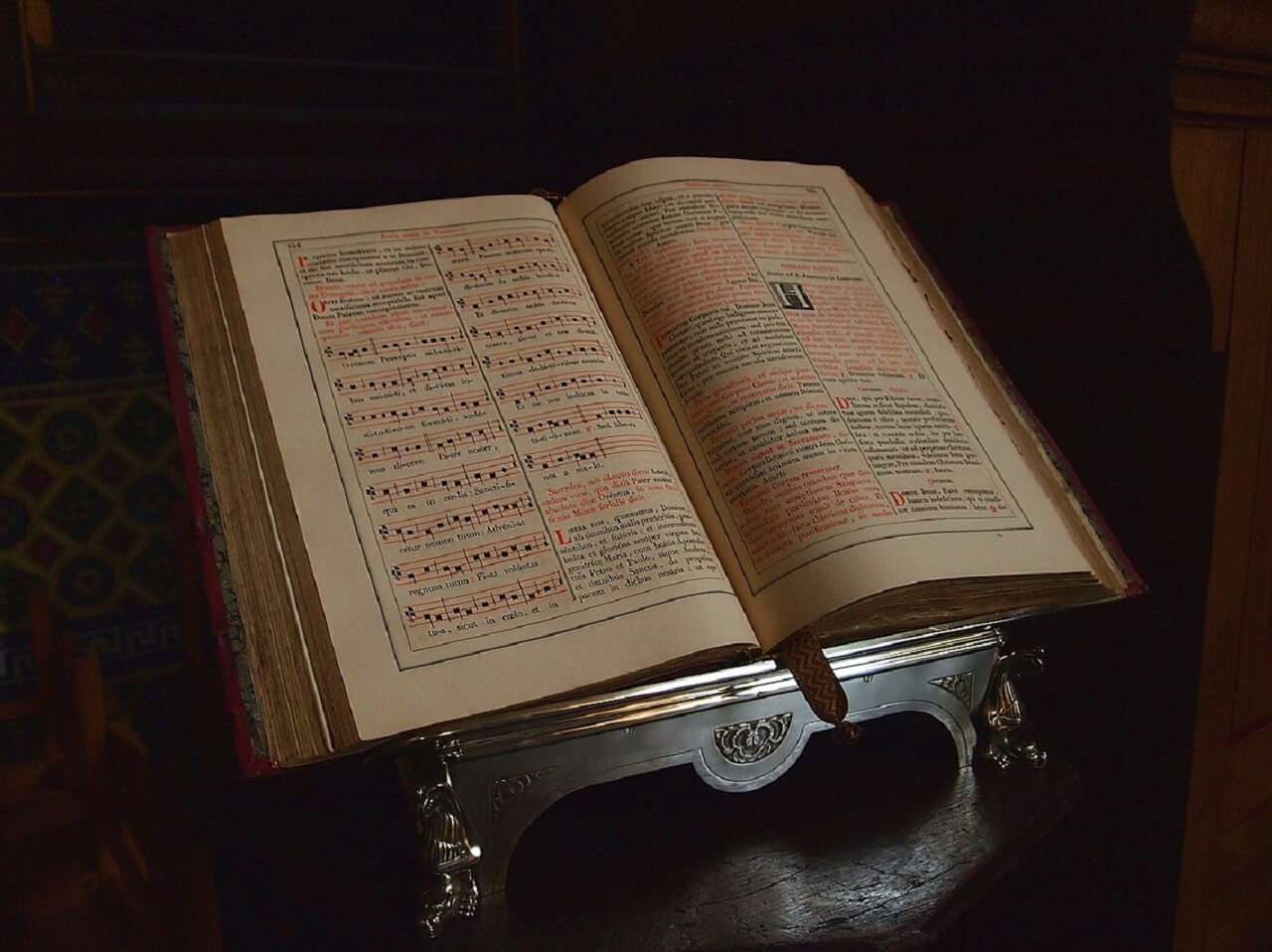At the end of last September in his apostolic letter Aperuit illis, Pope Francis declared that the third Sunday per annum in the Novus Ordo would be the “Sunday of the Word of God.” In his letter, the pope left the particular shape of any celebrations to local churches (not especially helpful to those of us who are sick of improvisation in the liturgy), but stressed that the word of God should be enthroned in some manner [i]. Consequently, the Vatican said in a press conference reported at Vatican News that “there will be the solemn enthronement of the Lectionary that was used in all the sessions of the Second Vatican Council” before the Papal Mass on this newly themed Sunday.
In the Vatican News story, this fact appears under the heading “Vatican II Lectionary to be enthroned.” If one was just skimming this news story, one might come away with the impression that it is the post–Vatican II lectionary that is being referred to here. After all, the title page of this book proclaims that it has been “renewed by decree of the most holy Second Ecumenical Council of the Vatican” (ex decreto sacrosancti Oecumenici Concilii Vaticani II instauratum). What else could “Vatican II Lectionary” refer to?
What should be recalled by everyone is that the “Vatican II Lectionary” is, in fact, the one used at the Council itself, before the liturgical reform: in other words, the traditional lectionary of the Roman Rite. The traditional lectionary, with its one-year cycle of readings that is pedagogically and psychologically much more suited to the lay faithful; the traditional lectionary that, through its yearly repetition of readings, allows those who participate in the liturgy to internalize the biblical text and make God’s word come alive in them [ii]; the traditional lectionary, which preserves the whole message of the Sacred Scriptures and has not been constructed to assist with the sanitizing of “hard” texts; [iii] the traditional lectionary, tried, tested, and proven in the lives of countless saints who have gone before us.
And so, on the first “Sunday of the Word of God,” this lectionary was enthroned – this lectionary that was given pride of place in a form of the Roman Rite that lamentably cast it aside. Those of us who are fortunate enough to regularly attend the usus antiquior and feel the mental and spiritual benefits of its lectionary should rejoice in this enthroning of the liturgical tradition, and we should work toward the recovery of this great treasure for the whole Roman Rite.
[i] Cf. Aperuit illis, 3: “The various communities will find their own ways to mark this Sunday with a certain solemnity. It is important, however, that in the Eucharistic celebration the sacred text be enthroned, in order to focus the attention of the assembly on the normative value of God’s word.”
[ii] On these two points, see Peter Kwasniewski’s articles “Not More Scripture, but Different Scripture – Comparing the Old and New Lectionaries” (which is the introduction to my book Index Lectionum: A Comparative Table of Readings for the Ordinary and Extraordinary Forms of the Roman Rite) and “A Systematic Critique of the New Lectionary.”
[iii] Peter Kwasniewski examines the classic example of this in his article “The Omission that Haunts the Church — 1 Corinthians 11:27-29,” but see also my New Liturgical Movement articles “Short Forms of the Readings: Distorting the Gospel?,” “Lectio brevior and the Parable of the Talents,” and “Weeping and Gnashing of Teeth: A Curious Feature in the Reformed Lectionary.”


